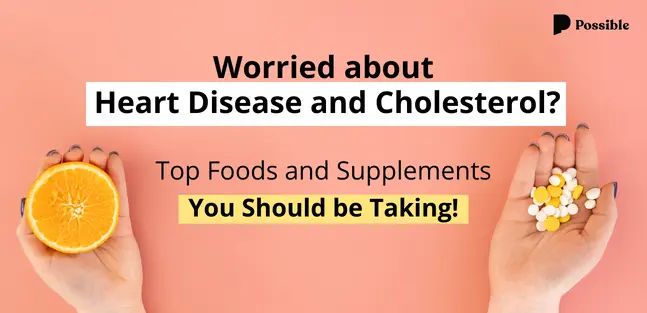“Heart disease is the leading cause of death worldwide — accounting for one-third of deaths in 2019” – WebMD
Over 60 lakh people globally die of heart attacks. Corona has killed a similar number but not in 1 year, but in 2.5 years. And it has created so much havoc. Why are we not bothered about heart disease in the same fashion? Is it because we have got used to it?
But when a 46-year-old fit actor dies of a heart attack, do we still accept it? I know at least 4 people in my family who have died of heart attacks in their 30s and early 40s. In the last 5 years. Should we get used to it?
“Indians have a higher propensity percentage of people who will get heart disease two to three times that of the Western world,” said Dr. Naresh Trehan, chairman and managing director of Medanta Hospital.
Do you know that heart disease is a lifestyle disease and with a proper lifestyle and diet, you can not just prevent the disease but also reverse it to a certain extent?
It’s such a big topic that I will need to write a book on it. But I know most of you would prefer a short blog and not a book. So I will do my best to make this blog useful to you.
What Causes Heart Disease?
Let’s start with a small quiz.
Between the following which is a better indicator of heart disease?
- High Total Cholesterol
- Internal Inflammation
- Insulin Resistance
If you are like most people, the answer would be high cholesterol. But you will be surprised to know that cholesterol is the last among the three. Total cholesterol has little or no effect on causing heart disease. You can read my article on this topic – “The Great Cholesterol Myth”: Top Lessons from the Bestseller Book
Whether you have high cholesterol or not, you need to measure yourself on these 5 parameters to know your heart health.
Insulin resistance not only causes diabetes but also causes heart disease. That’s why 80% of diabetics die of heart attacks.
Also, internal inflammation is another big factor in causing heart disease.
So, a diet which is good for insulin resistance and internal inflammation is good for the heart.
What Should You be Eating for Good Heart Health?
Let’s go through the steps we can take to eat a heart-friendly diet.
- If you have belly fat or visceral fat, then that’s the No. 1 thing that you need to do. Lose fat and get back to normal shape. That will have the biggest impact on insulin resistance.
- Then reduce dependence on wheat and rice. The Indian diet is largely formed of these two grains. Include more grains, millet in your diet. Replace white rice with brown rice. Have rotis made of different grains, not just wheat? Try to go gluten-free for a few days.
- Avoid refined and simple carbohydrates completely. No maida. No sugar. No white rice.
- Replace sugar with some natural sweeteners like stevia and erythritol. Gur, honey, and brown sugar are healthier than white sugar, but they are still sugar and spike your insulin levels.
- Restrict consumption of fruit to 1 per day. Fruits are also high in sugar and too much of a good thing is also not good.
- Increase protein sources in your diet. E.g. have sprouts, eggs. Have 2 bowls of dal, rajma, and chole instead of 1. Have chila, dhokla and other protein-rich breakfast items. Take a protein shake.
- Include good sources of fat. Have soaked seeds and nuts every day. Good fat is extremely beneficial for insulin resistance. You can have a handful of seeds and nuts every day. But it’s important to increase your fat consumption while reducing your carb. Too much food is not recommended.
- Sleep for 7-8 hours. Take less stress. Lack of sleep and stress releases cortisol, which is not good for insulin resistance.
- Be active. Not necessary to go to a gym (if you can go, nothing like it). Play some sports. Or do simple brisk walking. Especially 10-15 minutes after meals, especially after dinner.
- Though the common belief is that saturated fat is bad for the heart, it’s a big lie.
What Supplements and Herbs are Recommended for Heart Health?
Let’s go through some supplements and herbs which are recommended for heart health.
- Omega 3 fish oil or veg Omega 3: Almost all of us are deficient in essential omega 3.
- CoQ10: “A CoQ10 deficiency affects your heart as profoundly as calcium deficiency would affect your bones. We create less of it as we age, making it all the more important to supplement with CoQ10, as we grow older… CoQ10 reduces Lp(a), improves endothelial function, decreases cholesterol/triglyceride levels, increases HDL, decreases fasting blood sugar”: Dr. Jonny Bowden and Dr. Stephen Sintara write in their bestseller book “The Great Cholesterol Myth”
- Magnesium: Get yourself tested for magnesium deficiency. And if you are deficient, then you should consider 400-1000mg of magnesium supplement. Studies have shown a high dietary intake of magnesium resulted in reduced BP. Also, it helps with insulin resistance which is a big factor in heart disease. Also, it helps in relaxing heart muscles, dilates the arteries and makes it easier for the heart to pump blood.
- Spices and Herbs: Take spices and herbs which are beneficial: ginger, garlic, turmeric, fenugreek, and cinnamon.
Avoid calcium supplementation unless strongly recommended by a good practitioner. Calcium in arteries is not good. Research has shown that a faster progression of coronary artery calcium increases the risk of heart attack by 17 times.
Cover up for your deficiencies based on your lab reports. The most important ones to check are vitamin D, vitamin B12, zinc, iron, magnesium, and chromium.
Want to build a healthy lifestyle & be free from heart disease? Book a FREE health consultation to get professional guidance.
